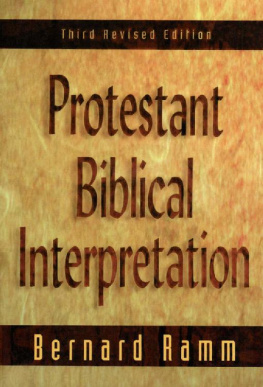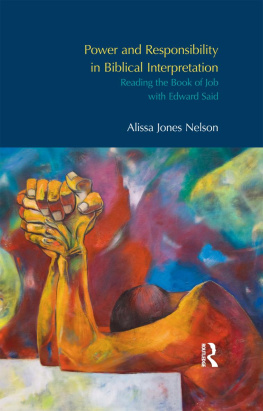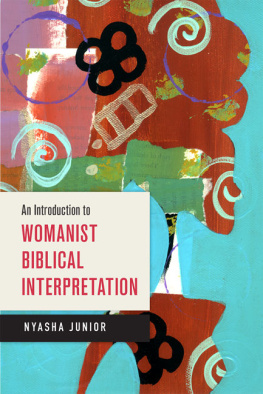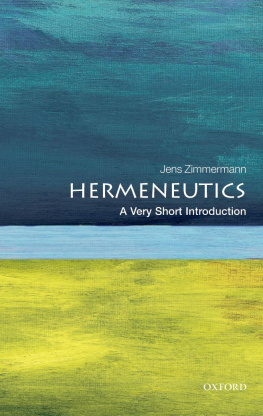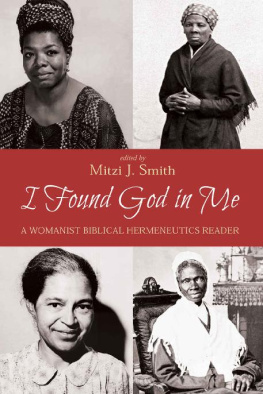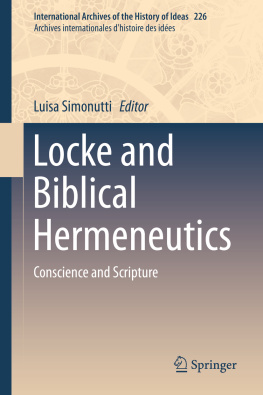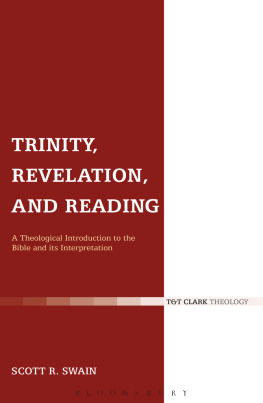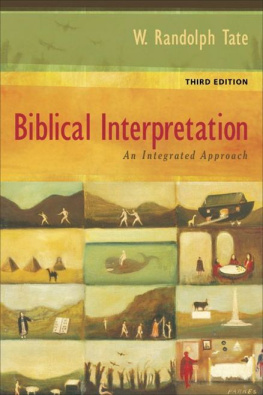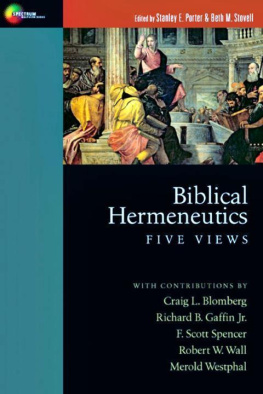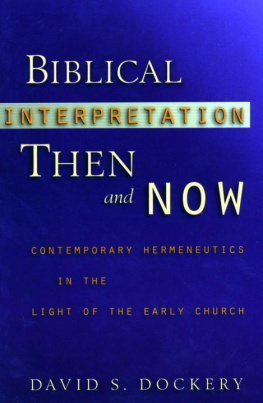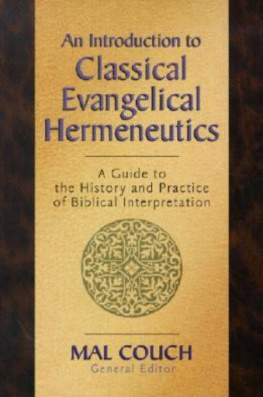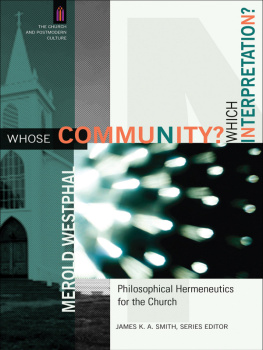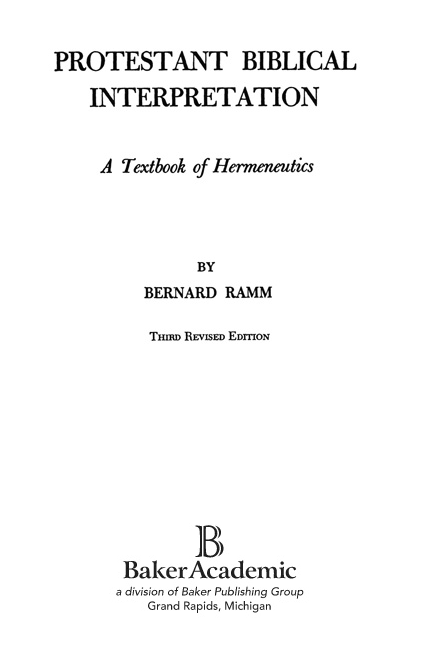
1970 by Bernard Ramm
Published by Baker Academic
a division of Baker Publishing Group
P.O. Box 6287, Grand Rapids, MI 49516-6287
www.bakeracademic.com
Ebook edition created 2012
All rights reserved. No part of this publication may be reproduced, stored in a retrieval system, or transmitted in any form or by any meansfor example, electronic, photocopy, recordingwithout the prior written permission of the publisher. The only exception is brief quotations in printed reviews.
ISBN 978-1-4412-0508-7
Library of Congress Cataloging-in-Publication Data is on file at the Library of Congress, Washington, D.C.
DEDICATION
This volume is dedicated with Christian affection to Dean Earl Kalland of the Conservative Baptist Seminary of Denver, Colorado; a friend, scholar, and Christian.
ACKNOWLEDGMENTS
The author wishes to express his gratitude to the following publishing houses for permission to quote from their publications:
James Nisbet & Co.: Types of Modern Theology , by H. R. Mackintosh.
The Macmillan Company: The Bible in the Church (copyright, 1948), by R. W. Grant.
The Presbyterian Guardian: The Infallible Word .
Charles Scribners Sons: Faith and History , by R. Niebuhr.
E. P. Dutton & Co.: Apologia pro vita sua , by Newman.
FOREWORD
Protestant Biblical Interpretation has set no publishing records since its first edition. But it has evidently served a need in the Church of Jesus Christ and went into a second edition and now a third edition. Both the first and second editions have been translated into Japanese.
We have not made a total rewriting of the book but added new matters that have come up in hermeneutics such as the New Hermeneutic, and we have more vigorously reorganized our basic theory by rewriting Chapters 3, 4, and 5.
A student of hermeneutics of the present faces two very cumberson problems. First, the amount of literature, directly or indirectly, bearing on all topics of hermeneutics is beyond any one mans ability to read it all. The materials from Germany alone, in periodicals and books, could keep any scholar busy all the time. Second, the Barth-Bultmann controversy, and the development of the New Hermeneutic have made hermeneutics the most fundamental or at least controversial problem in theology. We are now going through a hermeneutical debate perhaps not less serious than that of the Reformation. And that issue itself is worthy of an entire book. The more traditional items of hermeneutics have been almost pushed to the edge.
Bernard Ramm
Seminary Knolls
Covina, California
AUTHORS PROLOGUE
The author has endeavored to present that system of hermeneutics which most generally characterizes conservative Protestantism. In pursuit of this goal we have not defended any specific school of thought within Protestantism.
The material has been, therefore, kept general, and individual instructors may make their own emphases. Some writers on hermeneutics devote considerable space to detailed exposition or illustrations. We have tried to restrict our illustrations to a minimum, leaving that part of hermeneutics to the teacher to supply. Other writers defend distinctive doctrines that a literal method leads to, e.g., hyperdispensationalism, dispensationalism, or premillennialism. In our view of hermeneutics these are different conclusions that men have come to following the same general method of interpretation. They are the result of the interpreters skill or art, or lack of the same. It is our purpose to lay bare the essential features of the literal system. If we commence defending specific doctrines, we confuse hermeneutics with exegesis.
Greek and Hebrew words have been put in italics. Those who know the languages may resort to them, and those not familiar with them will not be too confused by the presence in the script of the original languages.
The word literal is offensive to some even within the conservative circle. In subsequent definitions, however, we make clear what the word means in our system of hermeneutics. The reader may turn to our citation in Chapter III in which E. R. Craven so clearly defines what is meant by literal. There is no other word that can serve our purposes except possibly normal. But the use of that word has its limitations and problems.
A special word of gratitude is to be extended to Dr. Gleason Archer for linguistic help; Dr. Edward Carnell for assistance in the chapter dealing with neo-orthodoxy; Dr. Wilbur Smith for many valuable suggestions throughout the book; Dr. Charles Feinberg for correcting the manuscript and giving valuable assistance in every way; Professor Walter Wessel for reading parts of the manuscript; Miss Inez McGahey for reading the manuscript for grammatical matters; Miss Barbara Pietsch for typing the manuscript; and to my wife for help on literary and grammatical matters.
We are grateful to God that this book in its first edition has been used in Christian schools literally around the entire world. Since the first edition we have rethought some problems, and read wider in hermeneutical literature. We have rewritten much of the book and changed the order of it in certain places.
The preaching and pulpit teaching in our land is not as yet sufficiently guided by a sound hermeneutics. One saying of Alexander Carson has stayed with us during most of this revision and could well be the theme of this revised edition:
No man has a right to say, as some are in the habit of saying, The Spirit tells me that such or such is the meaning of such a passage. How is he assured that it is the Holy Spirit, and that it is not a spirit of delusion, except from the evidence that the interpretation is the legitimate meaning of the words? ( Examination of the Principles of Biblical Interpretation , p. 23.)
PREFACE
St. Luke, in his record of what has been called by some the most beautiful chapter in all the Bible, the account of the walk of the risen Lord with the two disciples on the way to Emmaus, tells us that Jesus, beginning from Moses, and from all the prophets, interpreted to them in all the scriptures the things concerning himself. The word here translated interpreted is the Greek word diermeneuo . If we take away the two first letters, the prefix, and give a rough breathing to that initial letter e we have exactly the word from which our word hermeneutics is derived, meaning, then, the science of interpretation. (In the New Testament this word, in its various forms, may be found, e.g., in Matt. 1:23; Mark 5:41; 15:22,34; John 1:8,38; 9:7; Acts 4:36; 9:36; 13:8; I Cor. 12:10; 14:28; Heb. 7:2.) Hardly any study in the whole vast realm of intellectual life could be more important than the science of hermeneutics as applied to the Word of God, that which gives us an understanding of the eternal revelation of God to men. When such is absent not only have men misinterpreted the word, but they have taken falsehood out of the truth, and thus have deceived many when they should have led them out of darkness into light.
Half a century ago the great London preacher, Dr. Joseph Parker, delivered a sermon on the phrase, which being interpreted is, which he entitled The Interpreter.
Perchance most of the readers of this book have not seen a copy of this sermon, I would like in this preface to confront this generation of Bible students once again with the opening and closing paragraphs, from the heart and mind of him who did so much to awaken new interest in the Word of God in the London of another generation:
Which being interpreted,that is what we need: a man to tell us the meaning of hard words and difficult things and mysteries which press too heavily upon our staggering faith. The interpretation comes to us as a lamp, we instantly feel the comfort and the liberty of illumination. When we heard that word Emmanuel we were staggered; it was a foreign word to us, it brought with it no home associations, it did not speak to anything that was within us; but when the interpreter came, when he placed his finger upon the word and said to us. The meaning of this word is God with us, then we came into the liberty and into the wealth of a new possession.
Next page
